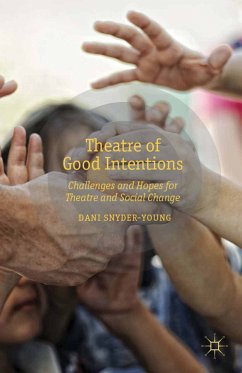Dieser Download kann aus rechtlichen Gründen nur mit Rechnungsadresse in A, B, BG, CY, CZ, D, DK, EW, E, FIN, F, GR, HR, H, IRL, I, LT, L, LR, M, NL, PL, P, R, S, SLO, SK ausgeliefert werden.
Hinweis: Dieser Artikel kann nur an eine deutsche Lieferadresse ausgeliefert werden.
"Staging Trauma is an exceptionally interdisciplinary, multifaceted, and reflective work of scholarship that examines the significance of the theatrical performance of trauma in individual and societal terms. It is recommended for students and scholars of many different interests including critical studies of theater and performance, trauma studies, and feminist theory. ... Finally, it is undoubtedly relevant for theater professionals ... ." (Eve Polley, The Harold Pinter Review, Vol. 3 (1), 2019)
"Staging Trauma is a work of great scholarly, personal and political care. Haughton's own commitment tosocial justice resonates throughout and serves to produce a volume that is both compelling and finely detailed, and that makes an excellent contribution to the fields of theatre studies and trauma studies." (Emma Willis, Irish University Review, Vol. 49 (1), May, 2019)
"Haughton's timely and significant book is positioned at the intersection of trauma studies with contemporary theatre and performance, and sets out to investigate theatrical interventions into the suppressed histories of forgotten populations. Written in a clear and readable style, it is suitable for final-year undergraduates onwards. It offers four detailed case studies, each addressing a different key concern: sexual violence, terminal illness, imprisonment, and asylum." (lisa Fitzpatrick, New Theatre Quarterly, Vol. 34 (04), November, 2018)









